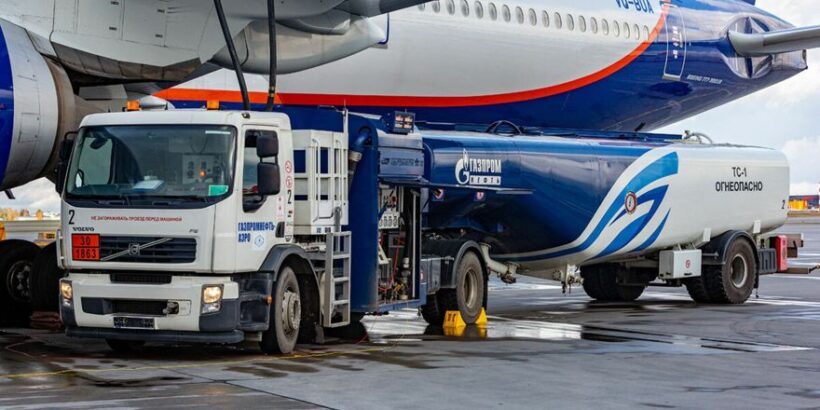The Federal Air Transport Agency (Rosaviatsiya), the Russian aviation authority responsible for civil aviation oversight, has issued a directive aimed at enhancing flight safety by tightening quality control over aviation fuel and lubricants (POL). This directive analyzes the causes of recent aviation incidents linked to substandard fuel quality and mandates that civil aviation organizations implement preventive measures. The announcement was made by Rosaviatsiya’s press service.
The agency cited specific incidents in 2024 involving Red Wings’ Sukhoi Superjet 100 (SSJ100) aircraft, tail numbers RA-89156 (April 25) and RA-89138 (October 17). In both cases, engine fuel filter blockage warnings were triggered during takeoff roll or initial climb. Fuel sample analysis revealed mechanical impurities with high sulfur content, along with chlorine, lead, and barium compounds.
Additionally, particles of paint coating and organic deposits were identified. Filters cleaned according to PJSC UEC-Saturn (ODK-Saturn) service bulletin procedures showed the presence of phosphorus compounds commonly found in AMG-10 hydraulic fluid. Similar elevated phosphorus levels were previously detected in engine filters removed due to blockage warnings on SaM146 engines.
On October 12, 2024, an Ural Airlines Airbus A320, tail number RA-73826, experienced a loss of engine #1 RPM during climb. Inspection of the Hydromechanical Unit (HMU) of the fuel control system revealed organic and inorganic deposits that caused seizing of the close-tolerance HMU friction pairs.
Investigations determined that fuel contamination stemmed from improper storage and handling procedures, inadequate filter cleaning, contamination in fuel tanks, fuel storage violations, and overdue maintenance of fuel handling equipment. These factors led to fuel system blockages, reduced engine performance, and increased risk of hazardous situations.
Recommendations
To mitigate these risks and enhance flight safety, Rosaviatsiya requires civil aviation organizations and POL operators to conduct thorough risk assessments related to fuel and lubricant quality and to develop effective corrective action plans. The adoption of advanced technologies that prevent contaminants from entering fuel systems and engines is essential.
Maintenance personnel must strictly follow all established procedures when handling fuel and its components to prevent contamination. Unscheduled inspections of fuel filters should be conducted to promptly detect impurities, complemented by regular monitoring of fuel quality to ensure compliance with civil aviation standards.
Furthermore, Rosaviatsiya stresses the importance of using only certified filter elements, explicitly prohibiting non-certified materials as outlined in letter No. 20798/02 dated June 6, 2025. The diligent implementation of these measures will significantly reduce risks associated with poor fuel quality and contribute to safer flight operations.


